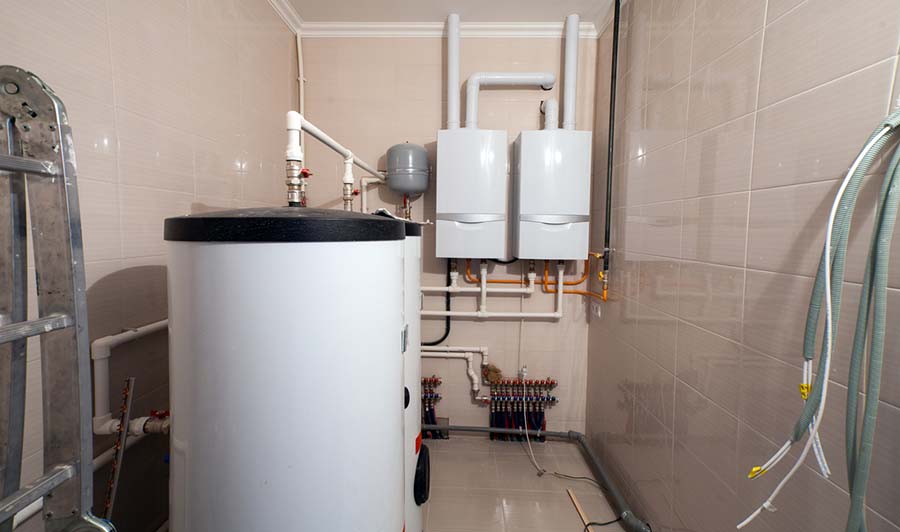Tackling the Frequently Encountered Water Heater Emergencies
Tackling the Frequently Encountered Water Heater Emergencies
Blog Article
We've encountered this post relating to The Importance of Water Heater Maintenance listed below on the internet and figured it made good sense to talk about it with you over here.

A water heater is just one of the most essential fundamental appliances that can be found in a home. With hot water heater, you don't need to undergo the stress of home heating water by hand whenever there is a requirement to wash, wash, or the meals. However, there is always a possibility that your water heater would certainly act up just like a lot of mechanical devices.
It is essential to note any kind of little breakdown as well as tackle it swiftly before things leave hand. A lot of times, your hot water heater begins to malfunction when there is a build-up of debris as a result of continuous use. As a safety measure, regular flushing of your hot water heater is suggested to prevent debris buildup and prevent useful failing.
Typical water heater emergencies and just how to manage them
Insufficient warm water
Handling a not enough supply of warm water can be irritating. It may be that the water heater can not sustain the hot water need for your apartment. To take care of this trouble, you could try to adjust your heating unit's temperature dial and await a couple of mins. You can ask for the assistance of a professional plumber if the problem persists. You can update your water heating system to one with a bigger ability.
Varying water temperature.
Your water heating system could start producing water of various temperatures typically ice cold or scalding hot. There may be a demand to change either the heating or the thermostat device of your water heating system.
Leaking water heater tank.
In this circumstance, you ought to turn off your water heating system, permit it to cool down, and very carefully look for the source of the trouble. At times, all you need to do is to tighten a couple of screws or pipe connections in situations of small leakages. If this does not function as well as the leakage continues, you may require to utilize the solutions of a specialist for a suitable replacement.
Tarnished or stinky water
When this happens, you need to understand if the issue is from the water or the storage tank source. If there is no funny odor when you run cold water, then you are particular that it is your water heater that is malfunctioning. The smelly water can be created by corrosion or the accumulation of germs or sediments in the water heater tank.
Conclusion
Some home owners ignore little caution and minor faults in their water heater unit. This only leads to more damages and also a possible complete break down of your appliance. You must manage your hot water heater faults as soon as they come near prevent more costs and unneeded emergency difficulties.
With water heating systems, you don't need to go with the stress and anxiety of heating water by hand every time there is a requirement to take a bath, do the laundry, or the recipes. It might be that the water heating unit can not sustain the hot water need for your apartment or condo. Your water heating system might start generating water of various temperatures typically ice scalding or cold hot. If there is no funny scent when you run chilly water, then you are certain that it is your water heating system that is malfunctioning. The odiferous water can be created by rust or the accumulation of microorganisms or sediments in the water heater tank.
Common Water Heater Issues and What You Should Do
What Type of Water Heater Do You Have?
Before we begin it’s first important that you identify the type of water heater you have on your property. There are two main types of water heaters out there: conventional and high efficiency.
Both of these types of products typically use either gas or electricity to heat power. There are also solar water heaters that use a thermal collector on the roof or yard to heat the water.
While these models are not as common, they can cut heating costs in half. In this article, we will focus on conventional and high efficiency.
How Do My Electric and Gas Water Heater Work?
Though they look similar, electric and gas water heaters work very differently. It’s important to know their basic function because often problems can be specific to the heating source.
In the electric model, a thermostat on the side of the machine detects the temperature of the water in the tank. When the temperature needs to rise electricity flows to a heating element suspended in the water.
Gas models also use a thermostat device — typically with a mercury sensor at the tip and an additional sensor called a thermocouple. The thermocouple detects whether the pilot light is on and controls the flow of gas.
When the thermostat drops below the appropriate level gas is released which becomes ignited by the pilot light. The flame heats the bottom of the water tank which causes hot water to rise and cold water to drop.
This natural circulation continues until the water reaches the desired temperature. Then, the thermostat triggers the gas control valve to shut off the flow of gas.
What Are the Most Common Issues and How Do You Fix Them?
https://happyhiller.com/blog/common-water-heater-issues-and-what-you-should-do/

I hope you liked our section on Is Your Water Heater Leaking?. Thanks so much for taking the time to browse our posting. If you enjoyed our article if you please do not forget to pass it around. We treasure reading our article about Common Hot Water Heater Problems.
Urgent plumbing needs? Seek professionals. Report this page